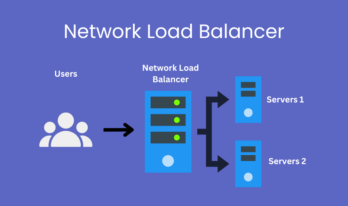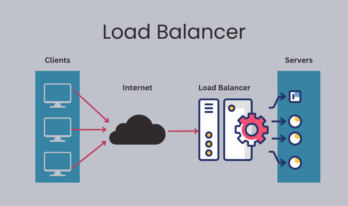Composable ERP strategies provide an immense amount of advantages for businesses. Moreover, businesses leverage composable ERP advantages to ensure adequate integration. Further, business leaders must understand the various solutions to help build ERP strategies. As a result, businesses must consider the concept of “composable” across the ERP infrastructures. Hence, businesses can consider composable ERP advantages to sustain operational changes.
According to a Gartner report, “By 2023, organizations that have adopted a composable approach to ERP will outpace the competition by 80% in the speed of new feature implementation.”
Moreover, businesses are integrating their modern-day ERP solutions with technologies like AI, Machine Learning, and big data analytics. Therefore, this paves the way for Composable ERP to be more accessible using SaaS-based ERP solutions with APIs. Hence, this article discusses the concept of Composable ERP and its advantages to businesses.
Understanding Composable ERP Systems and their Advantages
What is Composable ERP?
Gartner coined the term “Composable ERP” to explain post-modern ERP strategies. Moreover, the term describes the use of adaptive technologies to help businesses cope with market trends.
Therefore, Gartner defines Composable ERP as, “an adaptive technology strategy that enables the foundational administrative and operational digital capabilities required for an enterprise to keep up with the pace of business change.”
Composable ERP is also a highly configurable AI-based cloud solution that provides unique features. Moreover, it offers robust flexibility and helps businesses evolve with market trends by supporting their requirements.
Further, Composable ERP offers features like personalization, data-centric processes, scalability, etc. The concept also helps adapt faster to various operational and strategical changes. It also helps businesses improve scalability and interoperability, which are composable ERP advantages. Further, according to a report by Boomi, 94% of organizations adopt composable ERP to reduce limitations and leverage the advantages to gain a market edge.
Key Steps that help develop a Composable ERP system
- Firstly, businesses must consider their regular operations to create a business architecture. Therefore, they can drive innovative strategies foreseeing changes in the market trends while streamlining operations.
- Moreover, businesses can implement a more adaptive working environment. It can also develop techniques like co-creation, seen in fusion teams.
- Further, businesses can leverage data and insights to support strategic decisions and execute operations.
- Businesses must also scale the digital and technical solutions to initiate digital transformations. Hence, offering faster implementations by incorporating existing with new and emerging techniques.
How does Composable ERP work?
Composable ERP simplifies interactions and communications throughout business functions. Further, developing an efficient composable ERP approach to implementing various business models. Hence, it ensures continuous development and growth for businesses.
Hence, here are the following steps to implement Composable ERP:
- Firstly, businesses need to create a core that would deploy and deliver solutions across operations.
- Moreover, the solutions must immediately adapt and provide flexible accessibility.
- It also analyzes abilities and aligns resources for training.
- Further, it identifies the systems and their capabilities used in multi-cloud environments.
- It also defines performances and expectations by monitoring and examining deliverables.
- Further, it ensures to secure and protect confidential data.
Why is Composable ERP Important?
Businesses often attempt to develop their uniform ERP solutions according to market trends. Although businesses may face challenges due to the continuous changes and requirements. Moreover, the ERP solutions are not accessible for reuse. Further, according to Gartner's report, more than 40 % of enterprises would have deviated from traditional and monolithic ERP to a more “governed, business-led postmodern ERP strategy”.
As a result, composable ERP solutions provide adaptive features that offer advantages like higher flexibility and scalability. It also helps businesses in pivotal functions while mitigating the need for remodeling abilities. Hence, it helps businesses develop and expand using perceptive technologies.
Further, assembling and orchestrating functionalities help composable ERP build components and integrations. Therefore, it helps businesses adapt to various business requirements.
Key Capabilities of Composable ERP
- Adaptability: Firstly, composable ERP solutions are highly adaptable and are ready to develop with changing objectives and requirements.
- Cloud-Native and Multicloud: Further, Composable ERP can be hosted on multiple cloud environments for maximum accessibility.
- Compose and Recompose: Moreover, composable ERP provides composable and re-composable capabilities to deliver customer-centric business requirements.
- Omnichannel: It also helps provide coherent user experiences across various channels.
- APIs: With Composable ERP businesses also offers a more modern approach to integrating digital environments and business frameworks.
Role of Composable ERP for Modern Businesses
According to Gartner, “Composable ERP is an adaptive technology strategy that enables the foundational, administrative and operational digital capabilities enabling an enterprise to keep up with the pace of business change.”
ERP solutions and platforms are evolved throughout the years to address changing environments. Further, recent ERP solutions are comparatively faster and more scalable. However, the rising industry standards render businesses to adopt solutions for easier management.
As a result, composable ERP is an emerging solution to help businesses with various changes. Moreover, business requirements constantly change and need tools to support them with a more responsive ERP system. Therefore, composable ERP strategies offer the flexibility and agility that help deliver innovative solutions. Composable ERP solutions also help accelerate the application experiences and enable faster implementation for extensions and advancements.
Composable ERP advantages achieve newer benchmarks for businesses using integrated solutions for composable and re-composable features. Hence, it helps businesses adept the capabilities to manage operations and workflows.
The Future of ERP is Composable
A Gartner report also states that “By 2023, organizations that have adopted a composable approach will outpace competition by 80% in the speed of new feature implementation.”
ERP solutions have historically proven to fail for multiple processes. Moreover, the solutions fall short while providing features like planning, designing, and real-time responsive execution. Therefore, it impacts customers, employees, and other associates' experiences.
Further, businesses must discover other solutions to execute functions to thrive and survive changing requirements. As a result, businesses must adapt to new changes and prepare for an era of composable ERP.
The emerging trends in ERP are integrating solutions for composable and re-composable requirements for a more customer-centric delivery. Moreover, composable ERP being an agile solution helps build administrative and operational capabilities. Composable ERP strategies also help businesses execute high configurational and operational integrations with modern technologies. Hence, helping businesses adapt to the changes in their environments.
Here are the Advantages of Composable ERP
-
Overcoming Challenges:
In light of the recent Pandemic, businesses are exploring various opportunities to update their ERP solutions. Businesses are also implementing new integrations to address the complex technological environments. Further, businesses are looking for better solutions to manage and monitor operations with the rise in remote working environments. Moreover, businesses are investing in advanced cloud-based technologies to automate operations and processes. Hence, it ensures employees receive appropriate access to data and information.
-
Ensuring Productivity:
There are various changes and evolutions that businesses have to adapt to in today’s digital environment. Moreover, businesses must prepare technologies and processes to cater to these changes. Therefore, it ensures robust employee productivity and operational continuity. Further, composable ERP solutions help enable seamless integration with teams and different departments. Hence, it helps easily manage, create, and change workflows with effective communication.
-
Leveraging Integration Capabilities:
Composable ERP helps businesses integrate solutions with various 3rd party applications. Moreover, it mitigates the requirement for monitoring and managing different systems and storing redundant information. It also helps businesses adopt integrations that help reduce maintenance costs. Moreover, it essentially executes and communicates information for various functions and processes. Hence, it helps comprehend various functions of the businesses by accelerating strategies and foreseeing opportunities for decision-making.
-
Sector-wide abilities:
Sector-wide ERP solutions incorporate pivotal tools like a generic system that manages basic business operations. Although, businesses are now in search of industry-specific solutions to cater to their requirements. Therefore, with composable ERP businesses can address their requirements using a single system. It also mitigates the expenses on additional resources and customizations.
Conclusion:
In conclusion, composable ERP offers advantages and conforms to new and evolving business requirements. Businesses also depend on composable ERP advantages to reduce risks and costs to offer strategic insights.
Gartner also forecasts that “By 2025, more than 70% of large enterprises will move from a single-vendor monolithic ERP strategy to a more inclusive composable strategy.”




